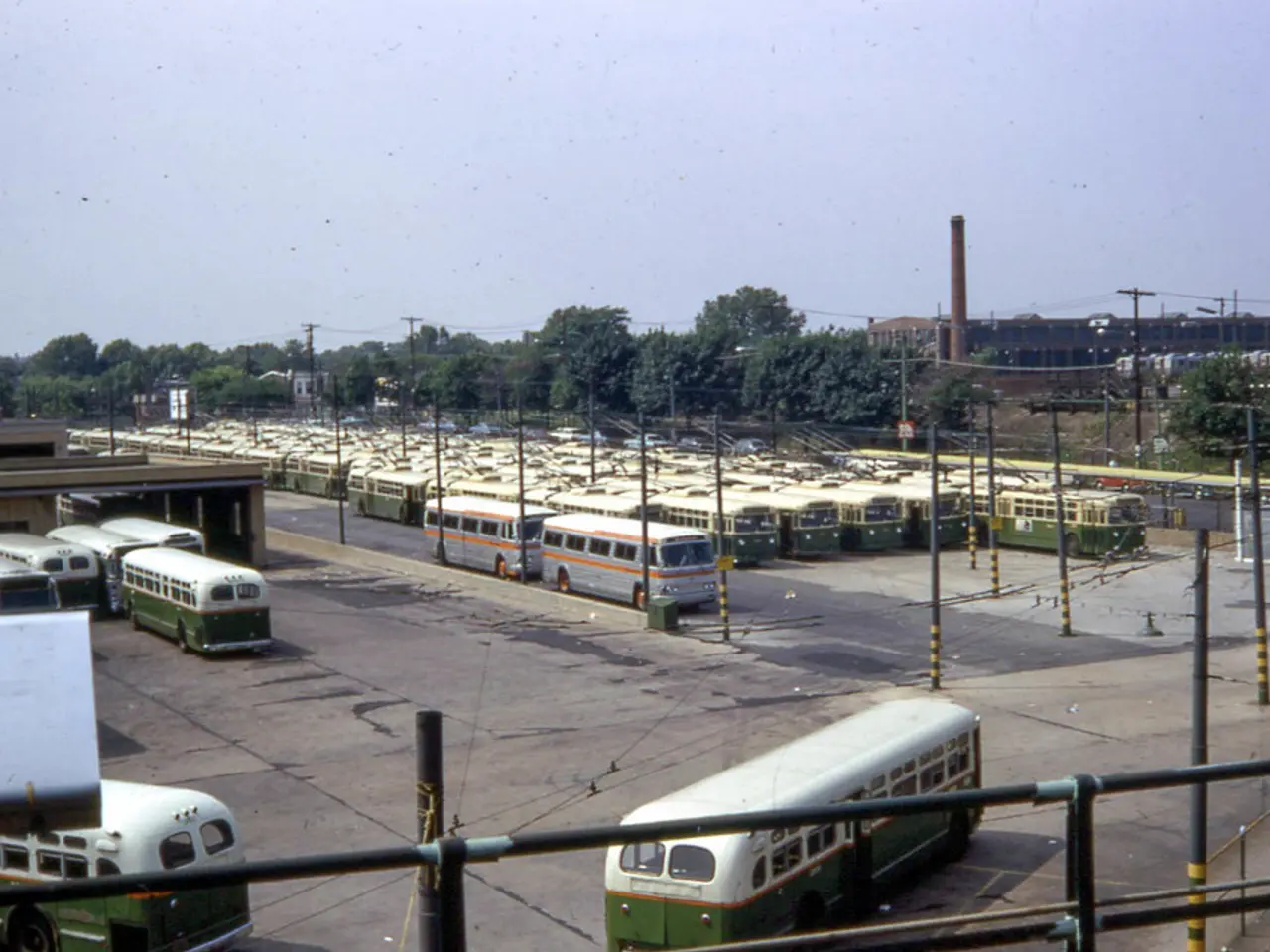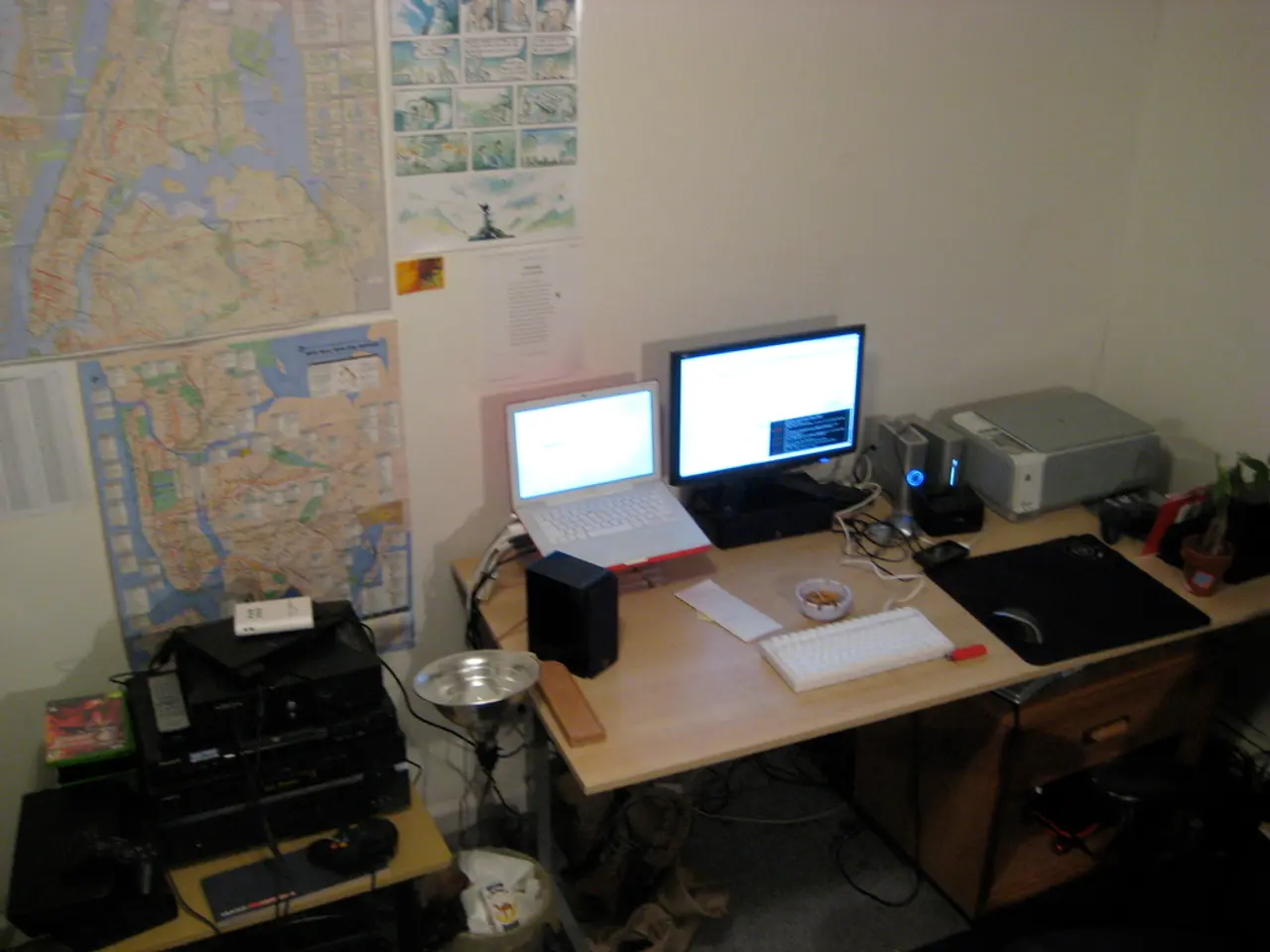Developing an AI-Centric Infrastructure for Environmental Friendliness in Global Trade Networks
Schneider Electric, a global leader in energy management and automation, has launched an AI-native software ecosystem designed to revolutionize sustainability and energy management across complex supply chains and logistics networks. The platform, centred around Zeigo™ Hub, integrates advanced artificial intelligence to drive sustainability and energy management, aiming to transform how organizations manage logistics, adapt to disruptions, and build supply chain resilience.
Key features of the platform include real-time analytics and visibility, agentic AI for enhanced decision-making, and cost-free, inclusive supplier engagement. The robust analytics engine provides continuous monitoring of performance, early identification of risks, and proactive responses to emerging issues. Agentic AI simplifies data entry, customizes supplier onboarding, and generates tailored decarbonization roadmaps for each supplier. Sponsor organizations cover all participation costs, encouraging widespread, inclusive adoption and strengthening the resilience of the supply network.
Decarbonization is seen as a resilience strategy within the platform, helping companies future-proof their supply chains against regulatory changes, resource scarcity, and climate-related disruptions. The platform's emphasis on science-based targets and continuous improvement ensures that resilience is built on a foundation of measurable, credible action rather than reactive measures.
Zeigo Hub is not a standalone tool but part of a broader Schneider Electric ecosystem that includes access to sustainability experts, consulting services, and a network of decarbonization solutions. This integration provides organizations with both the technology and the human expertise needed to navigate complex logistics challenges, adapt strategies in real time, and recover quickly from disruptions.
Schneider Electric's AI-native ecosystem represents a shift from traditional, reactive supply chain management to a proactive, data-driven, and inclusive model. By leveraging AI for real-time analytics, personalized engagement, and predictive optimization, the platform enables logistics networks to adapt more swiftly to change, mitigate risks, and maintain operations during disruptions—all while driving toward net-zero ambitions.
In summary, Schneider Electric’s ecosystem equips organizations with the tools, insights, and support needed to transform their supply chains into agile, sustainable, and resilient engines of growth, aligning logistics adaptation with global sustainability goals. The AI-driven platform's dynamic response capabilities are expected to contribute significantly to logistics planning and resource efficiency, signifying a shift toward embedded intelligence in sustainability operations.
- Schneider Electric's AI-driven platform, Zeigo Hub, is designed to revolutionize complex supply chain and logistics networks, focusing on sustainability and energy management, integrating artificial intelligence.
- The platform's features include real-time analytics, agentic AI for enhanced decision-making, and cost-free, inclusive supplier engagement, all aimed at transforming how organizations manage logistics and build supply chain resilience.
- Decarbonization is a key aspect of the platform, serving as a resilience strategy against regulatory changes, resource scarcity, and climate-related disruptions, while emphasizing science-based targets and continuous improvement.
- The platform is not a standalone tool but part of a broader Schneider Electric ecosystem, offering access to sustainability experts, consulting services, and a network of decarbonization solutions for navigating complex logistics challenges.
- By leveraging AI for real-time analytics, personalized engagement, and predictive optimization, the platform enables logistics networks to adapt more swiftly to change, mitigate risks, maintain operations during disruptions, and drive towards net-zero ambitions, aligning with global sustainability goals.




